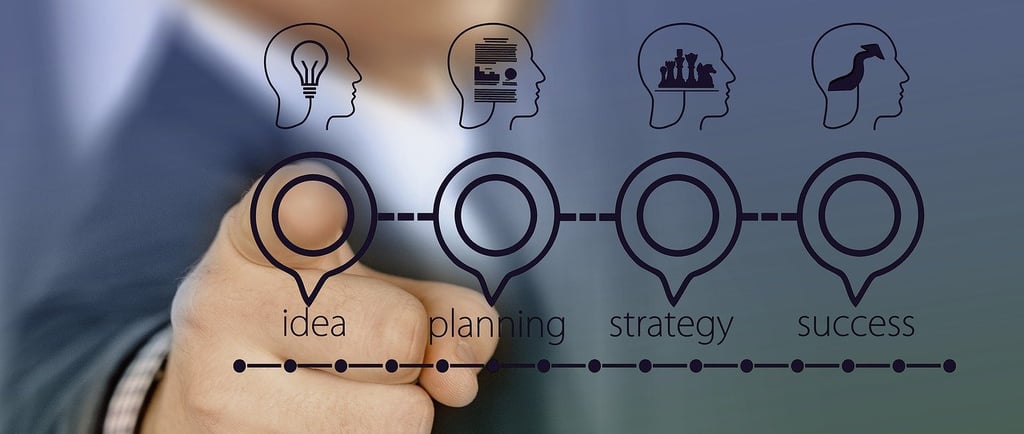The Biggest Myth About HR That Needs Busting
“HR is just a support function.” That belief is not only outdated—it’s dangerous.
Shantanu Saha
8/4/20252 min read


“HR is just a support function.”
That belief is not only outdated, but also dangerous.
In forward-thinking, high-performing organisations, HR is far from being on the sidelines. It’s a strategic enabler, a core business driver that directly impacts outcomes—from top-line revenue to bottom-line efficiency.
Here’s how strategic HR powers real business growth:
1. It Starts with the Business Plan
Mature companies integrate HR into the business planning process from day one. They don’t just forecast revenue—they map how to achieve it:
How many people will be needed?
By when?
At what cost?
With what skillsets?
This is more than headcount planning—it’s aligning people strategy with revenue targets and operational scalability.
2. Every Hire Is a Business Decision
Each function plays a specific role in delivering the plan:
Sales hires to acquire business.
Operations and delivery teams to execute and fulfill.
IT, Finance, Legal to enable scale and stability.
HR drives the alignment between demand (business growth) and supply (talent availability), ensuring the right people are in the right roles at the right time.
3. Compensation Isn’t Just About Salaries
HR collaborates with leadership to design comp structures that balance competitiveness with sustainability. This includes:
Fixed vs. variable pay
Incentives, benefits, ESOPs
Market positioning vs. internal equity
Regulatory compliance—PF, ESI, gratuity, maternity, POSH, etc.
Done right, comp strategy doesn’t just attract talent—it drives performance and retention.
4. Delays Cost More Than You Think
A silent killer in business planning is time-to-hire. Every day a key role remains unfilled can mean:
Revenue loss
Customer dissatisfaction
Burnout in other teams
Slower growth
HR plays a vital role in forecasting lead times for hiring, onboarding, and productivity ramp-up. This helps prevent execution bottlenecks.
5. Vendor Quality = Business Velocity
Hiring vendors aren’t just cost centers—they’re business enablers. Choosing partners solely on cost is a classic penny-wise, pound-foolish move.
Cheap vendors = poor candidate quality = delayed hiring = missed targets.
Strategic HR teams vet vendors not just for cost but for capability, market understanding, and alignment with the company’s brand and pace.
6. Stop Chasing Unicorns
One of the most common hiring pitfalls? Searching endlessly for the “perfect candidate.” In reality:
The ideal candidate may not exist.
Interviewers may not agree on what “ideal” looks like.
Long, clunky processes signal indecision and hurt your brand.
If a role isn’t closed in 30+ days, HR must step in: reassess the JD, align stakeholders, and streamline decision-making.
7. Every Candidate Interaction Builds (or Breaks) Your Brand
Every candidate you interview—and every vendor you engage—is an ambassador for your company. The experience they walk away with shapes your employer brand, whether you hire them or not.
HR ensures:
Clear communication
Professional interactions
A consistent and respectful process
8. Post-Hire, the Real Work Begins
Once someone joins, HR’s role only grows:
Aligning people to business KPIs
Driving engagement and motivation
Creating fair, ROI-linked performance systems
Addressing grievances early and effectively
Reinforcing company culture and discipline
The Bottom Line?
If HR isn’t embedded in your business strategy, you’re already bleeding value.
HR doesn’t just support the business—it powers it.
Contact Us
mail@therecruiters.net
+91-124-4142010 (Voice Mail)
© 2026. All rights reserved.
Corporates Seeking our Services may fill out the form or email us.
As a search firm, we only reach out to candidates when we have a specific mandate that matches their skills. Candidates may follow our Social Media Handles to keep updated on the latest vacancies.
For Paid Advisory Consultations - both Candidates & Companies may book our Founders' time via the following link: https://intro.co/ShantanuSaha
SF - 10, MGF Megacity Mall, MG Road, Gurgaon - 122002, India
